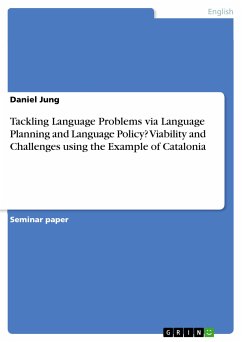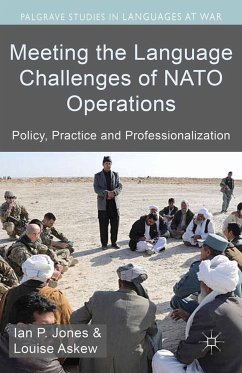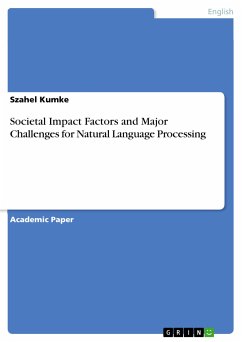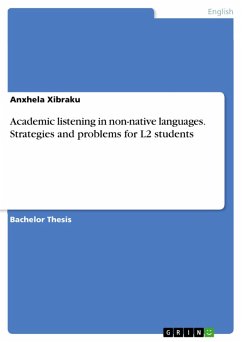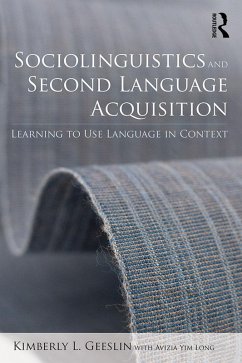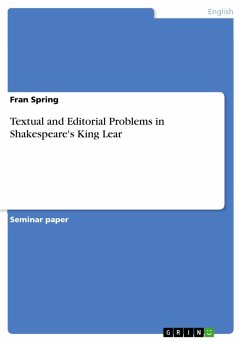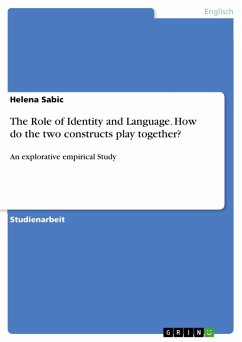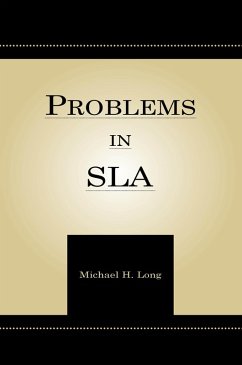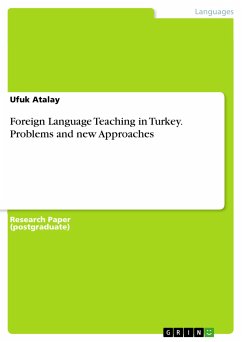
Foreign Language Teaching in Turkey. Problems and new Approaches (eBook, PDF)
Sofort per Download lieferbar
Statt: 15,95 €**
13,99 €
inkl. MwSt. und vom Verlag festgesetzt.
**Preis der gedruckten Ausgabe (Broschiertes Buch)
Weitere Ausgaben:

PAYBACK Punkte
0 °P sammeln!
Research Paper (postgraduate) from the year 2021 in the subject Speech Science / Linguistics, Selçuk University (Faculty of Letters), language: English, abstract: This paper looks into the intricate landscape of foreign language education in Turkey, shedding light on its historical trajectory, challenges, and potential avenues for reform. The essence of language as a tool of communication is explored, emphasizing its role in conveying thoughts and emotions. The acquisition of a foreign language is positioned as not only an understanding of one's heritage but also an immersion into diverse cul...
Research Paper (postgraduate) from the year 2021 in the subject Speech Science / Linguistics, Selçuk University (Faculty of Letters), language: English, abstract: This paper looks into the intricate landscape of foreign language education in Turkey, shedding light on its historical trajectory, challenges, and potential avenues for reform. The essence of language as a tool of communication is explored, emphasizing its role in conveying thoughts and emotions. The acquisition of a foreign language is positioned as not only an understanding of one's heritage but also an immersion into diverse cultures. The discussion on foreign language education in Turkey unveils a persistent dilemma rooted in the educational system's historical development, diagnostic phases, and bureaucratic complexities. The reluctance of educators to adopt innovative methods compounds the issue. The evolution of teaching methods, from behaviorist to cognitive, is examined, showcasing a shift from mechanical learning to holistic cognition-based approaches. Innovation in education is presented as intentional change, encompassing factors like dissatisfaction with the status quo, desired outcomes, and resource investment. The innovation process is mapped out, involving scouting, input, diagnosis, planning, implementation, and evaluation. The relevance of each phase in transforming education is underlined. Current trends in Turkish education reveal a preference for traditional methods despite the global shift towards constructivism. The lack of integration between theoretical concepts and practical implementation is noted. The importance of foreign language proficiency is underestimated due to its absence in national examinations. The impact of early language acquisition and the diminishing ease of learning with age are acknowledged. EUROSTAT research and PISA results highlight Turkey's low foreign language proficiency, accentuating the need for urgent reforms. The decline in proficiency over time underscores the pressing need for comprehensive strategies. However, the situation in underdeveloped countries is similar to that of Turkey, so the issues and solutions will also show similarities. Turkey has been presented as just one example.
Dieser Download kann aus rechtlichen Gründen nur mit Rechnungsadresse in A, B, BG, CY, CZ, D, DK, EW, E, FIN, F, GR, HR, H, IRL, I, LT, L, LR, M, NL, PL, P, R, S, SLO, SK ausgeliefert werden.




